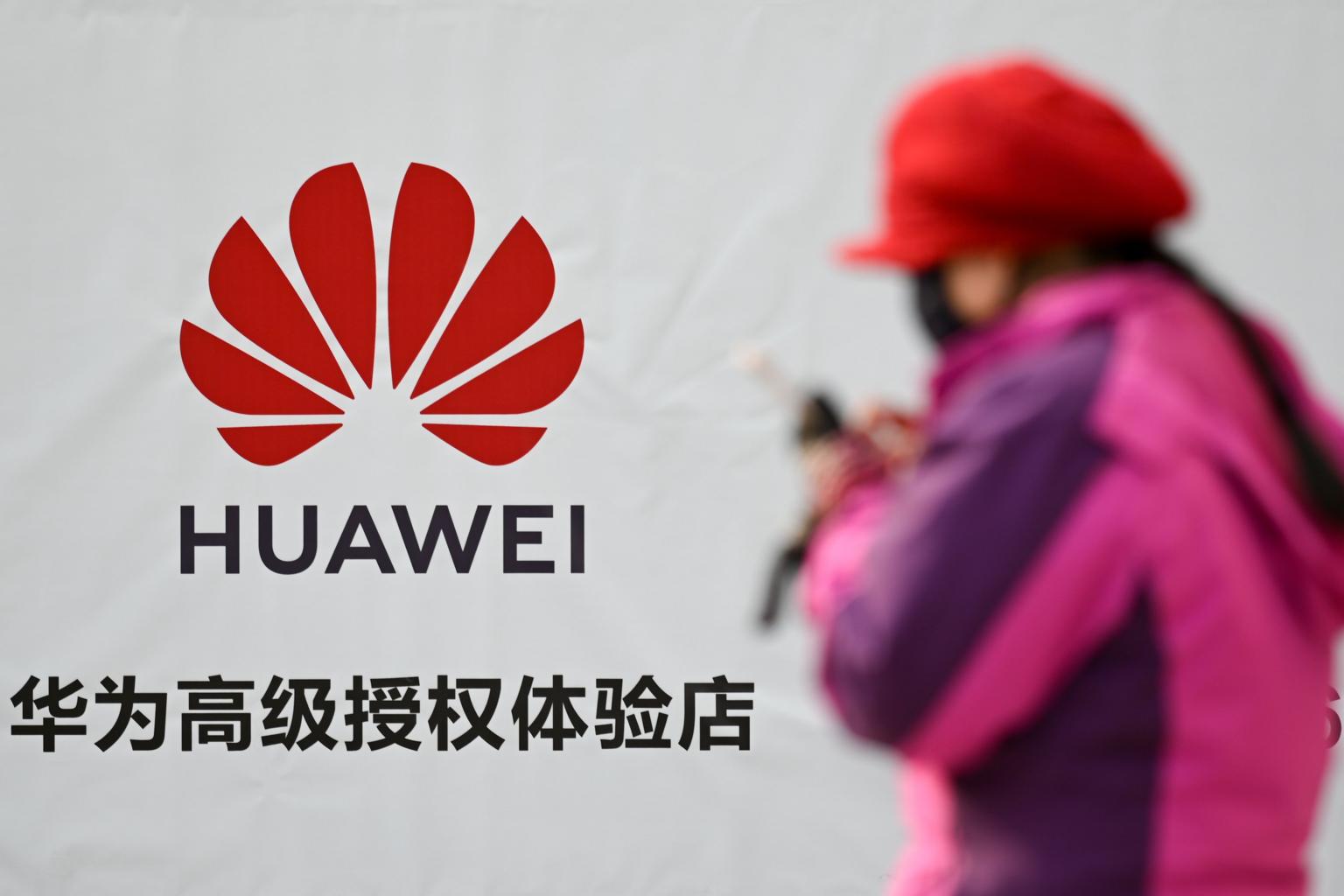Huawei issue opens rift between US and European mobile carriers
Sign up now: Get ST's newsletters delivered to your inbox

A woman using her smartphone walks past advertising outside a Huawei store in Beijing on Jan 29, 2019.
PHOTO: AFP
Follow topic:
WASHINGTON (BLOOMBERG) - A group representing top US mobile service providers disagreed with European counterparts over alleged security threats from Chinese equipment maker Huawei Technologies ahead of a conference that will highlight a United States-Europe divide on the issue.
A Feb 14 release from GSMA, a London-based wireless industry group, urged European lawmakers not to ban Huawei as a supplier.
But CTIA, a Washington-based group, responded on Tuesday (Feb 19) with its own statement saying the GSMA "does not represent the views of all wireless operators or all regions".
The European carriers offered to cooperate with their governments in devising steps to ward off vulnerabilities.
CTIA, with members that include US market leaders AT&T and Verizon Communications, has urged US regulators to go slow in crafting rules on equipment security.
"It looks like they're scared of the impact of European policymaking on the rollout of their 5G networks" that will offer advanced speeds, said Ms Gigi Sohn, a fellow at the Georgetown University Law Centre Institute for Technology Law and Policy, said of the US group.
"It seems they're concerned that if Europe does so, it would become the de facto standard."
A GSMA spokesman, in an e-mailed comment on Tuesday said its "initial statement was clearly focused on activity in Europe and does not reflect the views of all GSMA members globally."
The group says it represents the interests of mobile operators worldwide. The group lists AT&T and Verizon as members.
The US government is increasing the size of its usual delegation to the GSMA's annual industry conference, MWC Barcelona, to be held next week.
Huawei is also bolstering its presence at the event, setting the scene for a showdown as both sides try to win over the chief executives of the world's biggest carriers.
The US and China clashed last Saturday at a security conference in Munich over whether Huawei's equipment should be banned from future 5G networks.
US Vice-President Mike Pence said the company is required to turn over data to Beijing's security officials.
Chinese politburo member Yang Jiechi was up next on the same stage, and said his country's law doesn't require companies to collect intelligence. Mr Yang urged Europeans to consider whether the US had their interests at heart, or its own.
Shenzhen-based Huawei has denied wrongdoing and long maintained it doesn't provide back doors for the Chinese government, pointing out that no one has provided evidence to support such concerns.
CTIA didn't specify what was objectionable in GSMA's 800-word statement.
"We can achieve our 5G ambitions with a secure global supply chain that reflects national security concerns," the CTIA said. "We caution against a patchwork approach of different rules for different regions which would result in less competition in supply chains."
GSMA on Feb 14 said "mobile operators are ready to work with European agencies in charge of promoting certification and security requirements". It recommended that "governments and mobile operators work together to agree" on a testing and certification regime for Europe.
The Federal Communications Commission (FCC) should "work with other expert agencies to conduct a thorough quantitative and qualitative analysis of the costs and benefits of various approaches before taking action" on network security, CTIA said last year in a filing at the agency. The FCC is considering whether to bar spending of US subsidies on companies deemed a security risk.
Ms Jilane Rodgers Petrie, a spokesman for CTIA, didn't return a telephone call and e-mail.
The Feb 14 statement from GSMA didn't mention Huawei by name.
Restricting access to a network equipment maker would handicap Europe's progress in developing artificial intelligence, the Internet of Things and so-called big data, the group of more than 750 companies said.
The technology promises to deliver data to phones 10 times faster than 4G and to connect people, cars, factories and household objects.
The joint appeal follows individual warnings from companies such as Deutsche Telekom, Vodafone Group and BT Group and underscores how alarmed the companies have become that they may not be able to use one of their biggest suppliers.
The GSMA on Feb 14 said its members had found no evidence of wrongdoing even though they have been "meticulously" testing mobile infrastructure for years. The group said it would create a task force to find ways to strengthen existing security testing.

